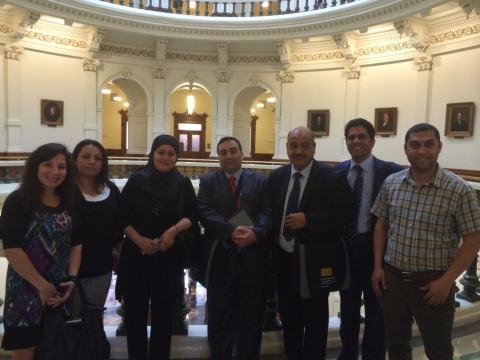
The Iraqi-U.S. Journalism Exchange program took place over a 12-day period. Part of the “Iraqi-U.S. Journalist Exchange” program, five Iraqi commentators embarked on a study tour that featured meetings with experts and visits to newsrooms and innovation centers in Washington D.C., and New York City. The program aimed to help these leading Iraqi commentators gain a better understanding of U.S. foreign policy towards Iraq, U.S.-Iraqi bilateral relations and the role of think tanks. The ultimate goal was to help the participants to provide in-depth analytical perspectives and evidence-based opinion pieces about the policy-making process in the U.S.
Activities focused on meetings with experts including U.S. government officials and think tank academics. During these meetings, they engaged in dialogues on U.S.-Iraq bi-lateral relations and U.S. foreign policy towards Iraq and its neighboring countries. The five Iraqi commentators also worked with an expert mentor to design in-depth analytical reports focusing on U.S.-Iraq bilateral relations.